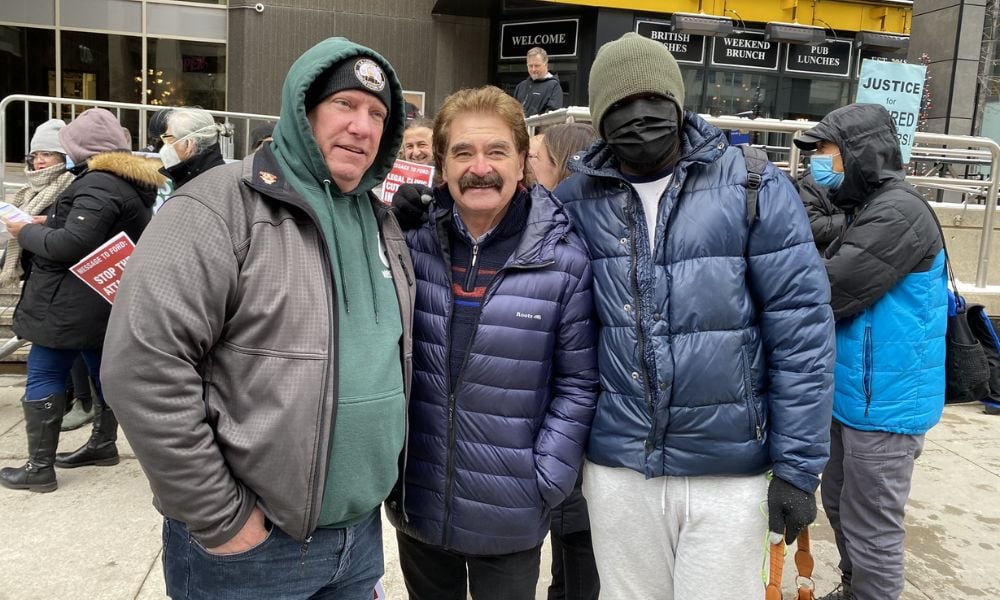Why Wayne Gates says injured workers are being treated unfairly

An Ontario politician is taking a second shot at ending the Workplace Safety and Insurance Board’s practice of deeming by re-introducing his bill, the Respecting Injured Workers Act. Wayne Gates is an NDP MPP representing the riding of Niagara Falls, and he has seen the practice of deeming ruin the lives of injured workers.
“You end up living in poverty in a lot of cases. They lose their partners, they lose their kids… they end up splitting up and ruining the entire family,” says Gates over the phone, his voice filled with emotion.
If a worker makes $25 an hour and gets injured on the job, instead of paying that worker $25 an hour, the WSIB can decide that while the worker can’t return to their old job, they can be deemed capable of working a minimum wage job that pays $16 an hour. That amount is then deducted from the worker’s benefit, and in this example, they would be left with a benefit of just $9 an hour.
“About 50 percent of everybody that is injured on the job and receiving WSIB benefits ends up being deemed,” says Gates, “it’s the number one issue with injured workers.”
In a statement to Canadian Occupational Safety, the WSIB says its goal is to help sick and injured workers return to work safely. “We are proud that with our help, almost 9 out of 10 people who miss work because of an injury are back on the job with no wage loss within one year of being injured.”
The statement goes on to say legislation requires the WSIB, “to determine their post-injury earnings based on employment that is identified as suitable and available for them…the WSIB only considers jobs that the person can perform, actually exist and are in demand in the labour market, and that the person has a real prospect of securing.”
The WSIB acknowledges severe work-related injuries can put a person in a position where they legitimately can’t find suitable employment. “In those cases, the person would be entitled to full loss of earnings benefits based on pre-injury earnings.”
Gates says those cases are rare, and the practice of deeming often forces injured workers to go on the Ontario Disability Support Program, which he points out shifts the burden of cost from the WSIB, to the taxpayer.
His bill would amend the Workplace Safety and Insurance Act so that the WSIB can’t determine earnings based on employment a worker doesn’t have unless the worker refused a job in bad faith. This is the second time Gates has introduced the bill, which passed first reading the first time around. But he’s not confident Premier Doug Ford’s Progressive Conservative government is interested in helping injured workers.
“As we’ve seen with this government, they can bring a bill forward on a Monday, and it's already passed on Thursday,” says Gates, while referencing the PC party’s “working for workers” slogan used in the previous election campaign and in other pieces of legislation.
Gates says apologies by the province, like the one for McIntyre Powder, are meaningless, if it continues to economically hurt injured workers.
“If you want to apologize, there'll be no acceptance of apology until we make sure that injured workers are taken care of… and they stop the deeming of injured workers.”





